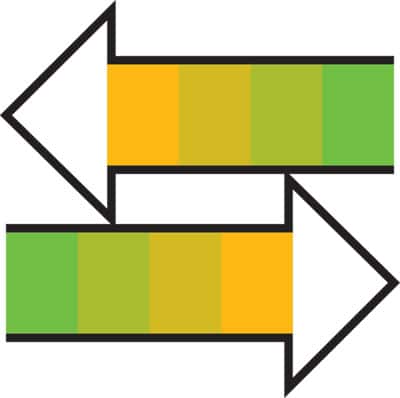XPAD newsDIGITIZATION FUELS EFFICIENCIES IN THE ENERGY SECTOR
As demands for energy increase and natural resources deplete, digitization creates opportunities to optimize energy assets. At HOERBIGER, compression technology is used to maximize natural resource extraction and a digital transformation pilot delivers a productive maintenance makeover.
There is nothing like a bad storm cutting the power to our homes and businesses to remind us just how much we rely on energy. From heating our homes and refrigerating our food to powering our many devices, there is not much we can do without it. So how do we make the most of the finite natural resources we have while renewable sources are being developed and adopted?
The question becomes increasingly important as we consider how fast the global population is increasing –7.4 billion and counting, growing to an estimated 9.6 billion by 2050 according to the United Nations Department of Economic and Social Affairs.
The answer? In part, it’s better management of those resources through digitization. Oil and gas companies for example, are optimizing their assets through cloud technologies, sensors, wireless communication, and big data. Suppliers are implementing real-time, remote control asset management and predictive maintenance to extend the life of their assets and improve operational efficiency. But sometimes the most impactful changes are the simplest.
Introducing HOERBIGER

HOERBIGER is an engineering-driven company with innovation in its DNA. 120 years ago, founder Hanns Hörbiger invented a steel plate valve for the compression industry that revolutionized the market. Today, operating in over 100 locations in more than 50 countries, the company’s 7,000 employees cater to three major markets. In the automotive industry, HOERBIGER makes synchronizer systems for manual transmissions and double clutch transmissions. In the industrial segment, they produce actuators for medical technology, machinery, and even amusement park rides. But it is in their energy business, where HOERBIGER manufactures components and services for turbomachines, natural gas-fired engines, and compressors for gas wells, where transformation efforts of routine maintenance processes are paying off.
Maximizing Returns on Existing Resources

Gas and oil wells that are nearly depleted are often abandoned, even when considerable resources remain and could still be extracted. The reason is that the remaining oil and gas can no longer be recovered profitably with conventional methods. A HOERBIGER wellhead compression unit sits on top of a gas well and allows mature fields to continue to produce and transport gas over long distances for high-pressure storage, as well as for use in power plants and industrial processes. This process extends the life of mature oil and gas fields cost-effectively and increases output by up to 30 percent, yielding more profit for the owner and more gas for consumers such as the chemical industry and power generation.
The company currently has 400 wellhead compressors running, with 300 in Argentina. The rest are in Mexico and throughout Latin America.
To date, the service of these compressors has been labor intensive, and in some cases, dangerous for those working on wells in remote areas. Servicing requires an operator to travel to the machine by car, sometimes several hundred kilometers, taking up to an entire day to visit just one machine. During that visit, the operator must retrieve all the information he needs during operating hours, document findings by hand, transfer the information to a laptop, and then make a second trip if analysis reveals further maintenance is required.
Pilot Delivers a Major Maintenance Makeover

A pilot project underway in Mexico will fully digitize the cumbersome maintenance process by bringing machine information into the SAP Cloud and transmitting it to the ERP system. If a machine goes down for any reason, the system autogenerates a maintenance ticket and the operator can be prepared to address the specific issue. HOERBIGER then can provide real-time information to the mechanics, saving unnecessary trips to physically inspect it, and allowing their resources to focus on proactively servicing the units and their customers.
“It’s changing the way we work drastically because suddenly we can better utilize and manage our mechanics,” said Thomas Kriechbaum, chief process officer at HOERBIGER. “It is also changing our business model. We can react instantly on performance of the machines and have a more holistic view because we have live data.”
HOERBIGER’s future plans include leveraging machine learning and Internet of Things to perform preventive and predictive maintenance on the equipment.
The more efficiently HOERBIGER can facilitate the extraction of natural resources, the less these precious commodities will go to waste.
